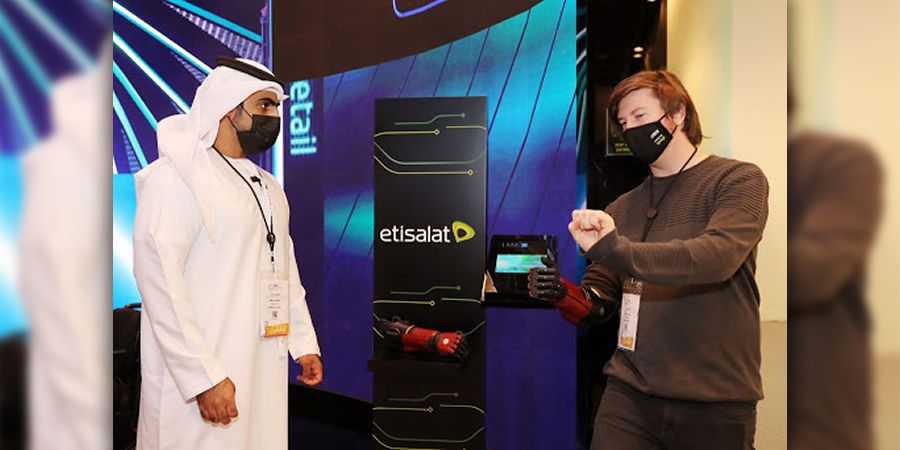Etisalat is demonstrating innovative healthcare solutions at GITEX Technology Week, with a major focus on ‘technology for good', highlighting transformative technologies aimed at enhancing the lives of People of Determination.
Etisalat’s mission is to constantly create a new care delivery model, leveraging Etisalat’s core assets such as big data, IoT, AI, blockchain and other technologies to improve patients’ experience and efficiencies for customers.
The healthcare section provides an insight into how technology can transform this sector with the cloud, IoT, M2M, AI, blockchain and state-of-the-art technology including with 5G, with cutting-edge healthcare solutions from around the world. The solutions follow a journey from health prevention, early diagnosis, timely treatment and care, health monitoring to patient empowerment and engagement.
Dr Ahmed bin Ali, Group Senior Vice President, Corporate Communications, Etisalat, said: “Etisalat envisions its technology as an enabler to transform the healthcare sector and improve people’s lives using digital health technologies. When it comes to People of Determination, Etisalat has endeavoured to enrich their user experience by providing them with various services and means of support in line with our strategy of ‘Driving the Digital Future to Empower Societies’.”
A self-driving electric wheelchair, PiiMO, is capable of independently detecting, avoiding people and obstacles on the way to their destination. The fully autonomous wheelchair is capable to go anywhere and anytime. Hero Arm is the world's first medically approved 3D-printed prosthetic arm, with multi-grip functionality and empowering aesthetics. Another example of ‘Technology for Good’ is NuEyes E2, a removable visual prosthetic that helps the visually impaired see again while keeping their hands free.
The Aimbot robot from ZoraBots is one of the best robotic solutions to address the current threat of COVID-19. It is an indoor intelligent and autonomous anti-epidemic robot designed and built for virus prevention. Equipped with functional modules and multiple sensors, it navigates autonomously, interacts with people, measures body temperature, detects improperly protected individuals and automatically sprays disinfectant in indoor space.
Also on display at the healthcare section is the first unmanned pharmacy store built on computer vision, machine learning, and sensor-fusion technologies. Consumers can scan a WeChat or Alipay code to enter the store, take goods, and leave while payments are completed automatically.
At the retail section, visitors can check out the Sound Shirt that slips on like a jacket allowing the deaf to “feel” music on their skin. The innovative shirt delivers a tactile experience where the hearing impaired can experience a live concert in a new, immersive way.










